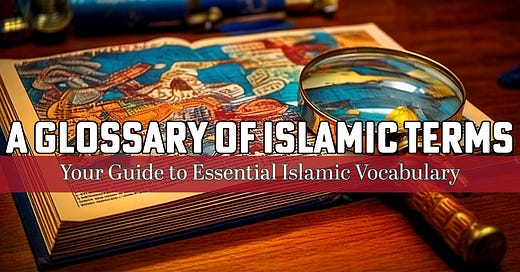﷽
In a recent conversation with a new’ish Muslim, he lamented on how it can be confusing to understand the way Muslims talk about Islām, especially the way they describe certain acts in Islām: sunnah, ḥarām, ḥalāl, wājib, and the list goes on. He asked if I could make a video/post addressing this issue and I remembered that many moons ago I used to have…
Keep reading with a 7-day free trial
Subscribe to Imam’s Corner to keep reading this post and get 7 days of free access to the full post archives.




